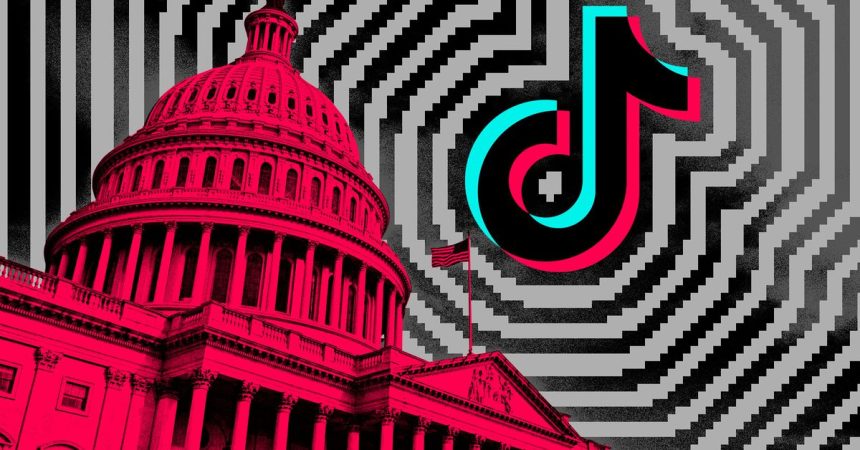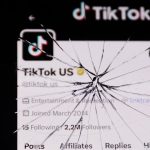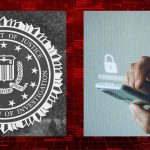A unanimous ruling by a panel of judges for the DC Circuit Court of Appeals has affirmed the constitutionality of a bill that threatens to ban TikTok from the US unless its Chinese parent company, ByteDance, divests its ownership. This decision escalates the pressure on ByteDance, imposing a looming deadline of January 19, 2025, just one day before the inauguration of President-elect Donald Trump for a second term, a scenario influenced in part by donations from ByteDance investor Jeff Yass. The impending deadline compels ByteDance to sell the widely popular video app or face its expulsion from the US market. Despite Trump’s previous attempts to ban TikTok during his first term, his stance has shifted during the recent campaign, now opposing the ban out of concern that it could benefit Meta, another company frequently targeted by his criticisms.
The legal avenues for challenging the court’s decision are limited. While the president has the discretion to grant a 90-day extension, this is contingent on demonstrable progress towards a spin-out. Trump could choose not to enforce the bill through the Department of Justice, but this leaves app store giants like Google and Apple, responsible for regulating app availability, in a vulnerable position. Their actions would be subject to the whims of a potentially changing presidential stance or the decisions of future administrations. Furthermore, the court’s ruling, based on evidence in the public domain, lends substantial weight to the legislative mandate, complicating any effort to circumvent it.
The court’s decision, penned by Judge Douglas Ginsburg, underscores the fact-specific nature of the ruling, emphasizing the extensive, multi-year investigations by both the executive and legislative branches into the national security risks posed by TikTok. These concerns, validated by persuasive evidence presented by the government, centered on the potential for data collection and covert manipulation of recommendation algorithms by the Chinese government. The court meticulously addressed TikTok’s arguments concerning First and Fifth Amendment violations, concluding that the law withstands strict scrutiny under the First Amendment and that the equal protection claims under the Fifth Amendment are unconvincing. The judges highlighted that the law is narrowly tailored to address specific national security threats, thereby justifying any limitations on free speech or potential discriminatory impact.
The court dismissed TikTok’s argument regarding the impracticality of divesting from ByteDance, attributing the difficulty to potential resistance from the Chinese government rather than inherent flaws in the law itself. The judges explicitly rejected the notion of allowing a foreign adversary to exploit the Takings Clause to undermine legislation designed to mitigate national security threats. This decisive stance reinforces the court’s commitment to upholding national security interests in the face of potential foreign interference. The court’s reliance on publicly available evidence, despite classified briefings informing lawmakers’ votes, emphasizes the transparency and objectivity of its decision-making process.
TikTok, through spokesperson Michael Hughes, expresses its intent to challenge the ruling, emphasizing the Supreme Court’s historical commitment to protecting free speech and anticipating a similar defense in this case. They argue that the ban is based on flawed and inaccurate information, leading to censorship of over 170 million American users. TikTok frames the ban as a silencing of American voices, both domestically and globally, highlighting the significant impact on a substantial user base. This sets the stage for a potential Supreme Court showdown, where the balance between national security concerns and First Amendment rights will be fiercely contested.
Attorney General Merrick Garland, in contrast, lauded the court’s decision, describing it as a crucial step in preventing the Chinese government from leveraging TikTok for potentially harmful purposes. He reiterated the concerns about data collection, content manipulation, and undermining national security, underscoring the perceived threat posed by TikTok’s connection to China. Despite Trump’s current opposition to the ban, the bill received significant bipartisan support in Congress, highlighting the broad consensus regarding the potential risks. Supporters argue that the law is necessary to safeguard American privacy and protect against foreign influence campaigns, citing Chinese laws that compel companies to share information with the government. This widespread support, spanning both political parties, strengthens the position of those advocating for the ban.



